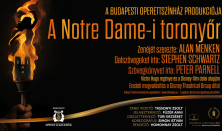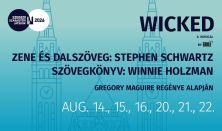It has proved to be a serious and even sombre source of inspiration, and it certainly does not take long to come across melancholic sounds within classical music. Our selection is made accordingly.
Don't be alarmed by the topic, however, as sadness inherently encompasses the possibility of a fresh start. As wounds heal, people instinctively begin to examine how they could improve their life and the life of their loved ones. Living through and experiencing great contrasts can help that process. Experts say it is actually harmful to struggle against uncomfortable memories. Sadness and mourning must be experienced; they must be understood. So let us not be ashamed of our tears; must allow our emotions to take their course! And let us not feel embarrassed if we find ourselves blushing when listening to the show. In addition to some major symbolic farewell scenes from the history of music (such as the Death of Aase or the farewell of Dido), the concert will also contain renditions of heartbreaking inserts of instrumental music, as well as excerpts from Tchaikovsky's and Chopin's more sombre works. The host and moderator, the opera singer Szilveszter Szélpál, will help us to discover the subtle shades of this seemingly uniform emotion.
Age: 10-14 years
Tchaikovsky: Youth Album for Piano, Op. 38 - No. 7: Burial of the baby
Schumann: Dichterliebe, Op. 48 - No. 10: Hör' ich das Liedchen klingen
Chopin: Etude in E Major, Op. 10, No. 3 ("Tristesse”)
Grieg: Peer Gynt Suite No. 1, Op. 23 - No. 2: Death of Aase
Purcell: Dido and Aeneas, Z. 626 - When I am laid in earth (Dido's Lament)
Elgar: Serenade in E minor, Op. 20 - second movement (Larghetto)
Barber: Adagio for Strings, Op. 11














